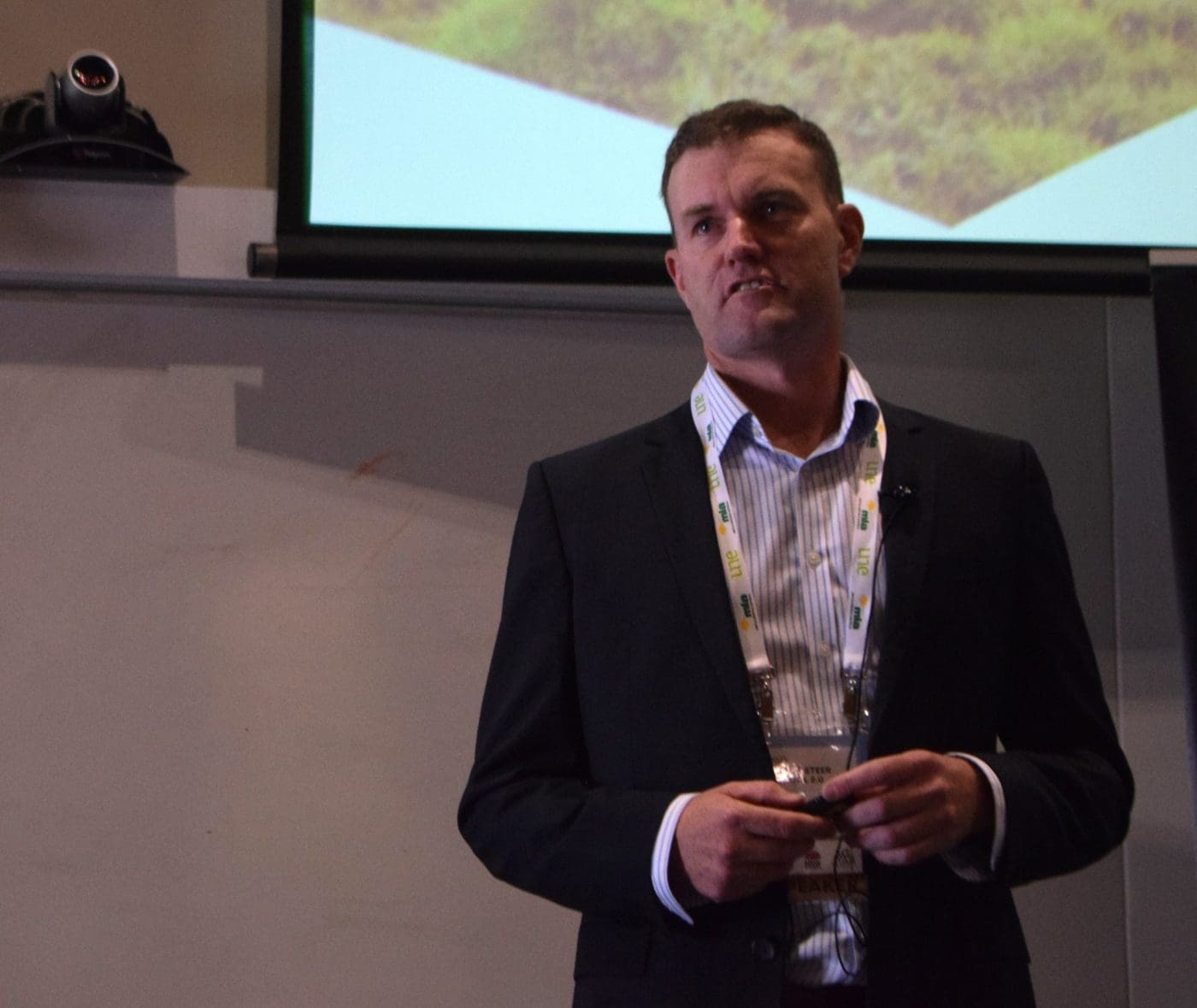THE managing director of Meat & Livestock Australia says the industry is keeping a close brief on the movements of the United States government, as US President Donald Trump threatens tariffs to trading partners across the world.
Michael Crowley gave one of the opening addresses to the University of New England’s Feeder Steer School 2.0 talking about opportunities for the industry to capture more value. Entering high value markets off the back of trade deals was one of the main opportunities.
Following his presentation, Mr Crowley was asked about the prospects of US President Trump putting a tariff on Australian beef. He said there was a lot in the Australian industry’s favour.
“We formed an industry working group which is getting daily briefings, it is very sensitive, but we are keeping a close watching brief,” he said.
“Trump was elected looking at reducing the cost of living and grocery items was one of the things that he ran on, so food hasn’t been on the table for tariffs to date.
“The other thing that is in our favour is that the balance of trade with the US is currently in their favour. He has focused on his closest neighbours with the balance of trade in their favour and he has backed off very quickly when something has been offered something in return.”
As Mr Crowley highlighted in his speech, the US is currently facing a significant shortage of locally produced beef – which has been the catalyst for Australian beef heading there in record volumes.
Finding high value markets
Capturing value for the Australian beef industry has been one of Mr Crowley’s main briefs since taking over the top job at MLA. He said free trade deals had opened more high value markets.
The UK FTA has been in place for the past 18 months and a recent deal has been signed with the United Arab Emirates.
Mr Crowley said there was a lot of opportunity in the Middle East.
“While those duties weren’t that bad, the UAE is a very high value market in gulf states and there is an opportunity to do more deals with the other member countries of the Middle East,” he said.
“They are big meat eaters, they love our product but we have created some tension over there with the decision to phase out the live export of sheep. They are still buying sheep from us and will continue to do so as long as they can.
“There is growing demand at the very high end of the Middle East. At the world expo last year, there was 100 new 5-star hotels built in Abu Dabi and Dubai.”
High value markets showing resilience
In Australia, he said the high value markets are proving more resilient to the current cost of living pressures.
“If you’ve been one of our capital cities in recent times and you go to a flash restaurant they are moving, it is unbelievable,” he said.
“If you are going out on a Monday night in Sydney you will have to book, even if you are going out to lunch.”
Mr Crowley said producing higher quality beef was an important way of differentiating Australian beef in international markets.
“Australia and the US are considered the highest quality producers of beef in the world,” he said.
“Brazil is one of largest cattle herds and largest exporter of cattle in the world. So, if we are going to play to commodity game we are up against Brazil with a third of the processing cost.”
Major potential in the European Union
Mr Crowley said if a trade deal with the European Union was signed, the Australian beef industry could benefit a lot.
Talks of a trade deal with the EU have stalled in recent times after some unsuccessful meetings in recent years.
Mr Crowley, who spent part of his time working at MLA in Europe, said he saw significant potential in the EU.
“The EU offers huge opportunity, big populations, they value quality and they are prepared to pay for quality,” he said.
“We are very restricted in the EU on quotas and access to that market. So, if we can do a decent trade deal with the EU it will hold a big key.”
Asked about the prospects of Australia getting a trade deal done with the EU, Mr Crowley said it was impossible to speculate on timeframes or likelihood. He said declining production with the EU could present opportunities.
“Their production on beef and lamb continues to decline and we want to position ourselves as the preferred third country supplier,” he said.
“I am hoping we can get back to the table on it, things have stalled recently, but our market access guys are heading over there in a few weeks and working with our Government representatives on bringing it back to table.”
Read Sheep Central’s story on US sheep producers putting tariffs on their agenda.



HAVE YOUR SAY